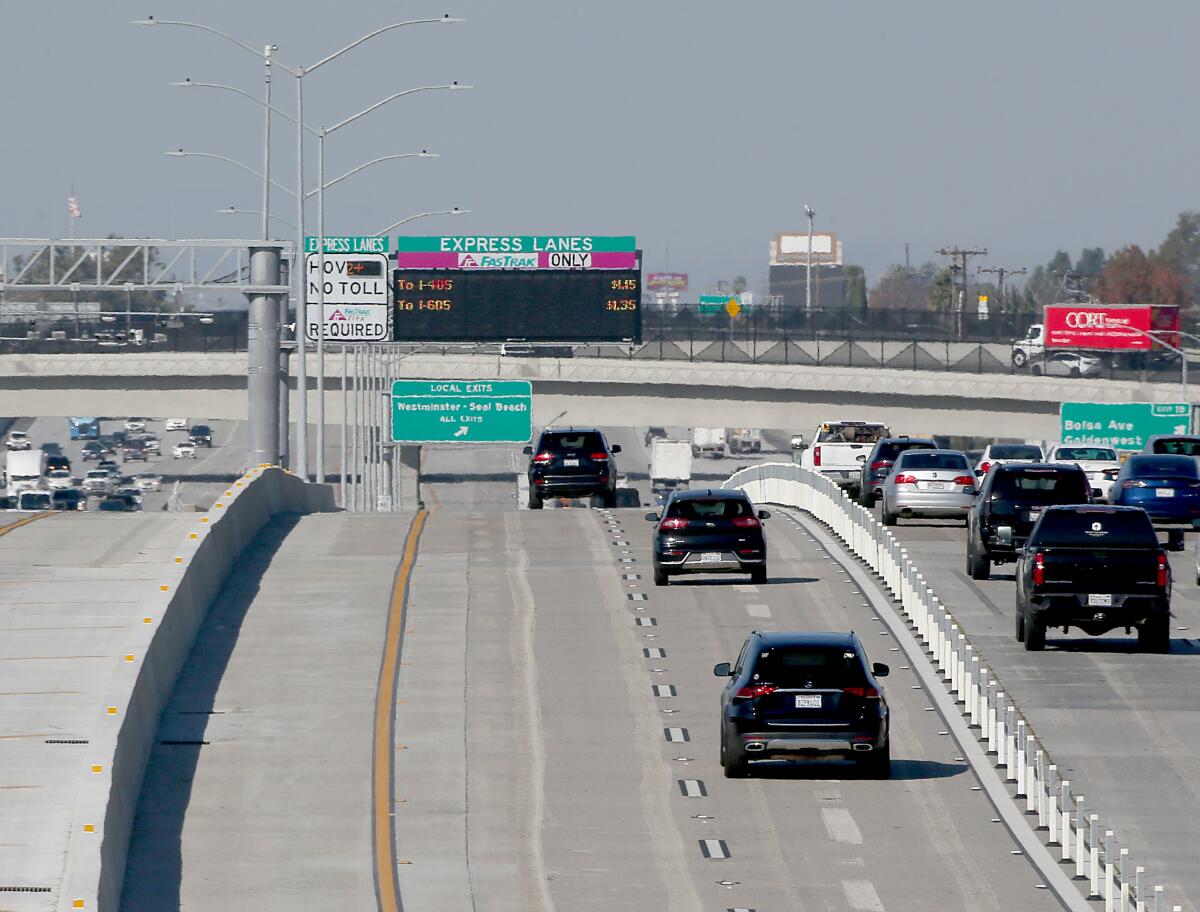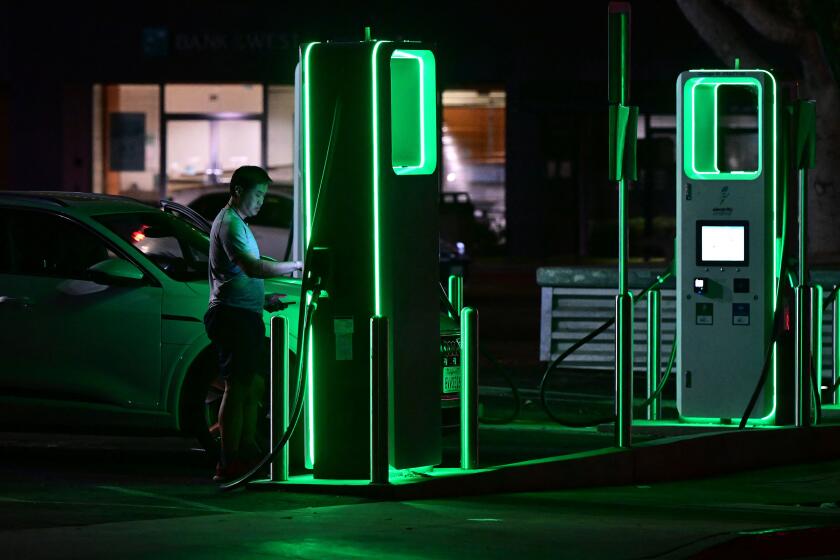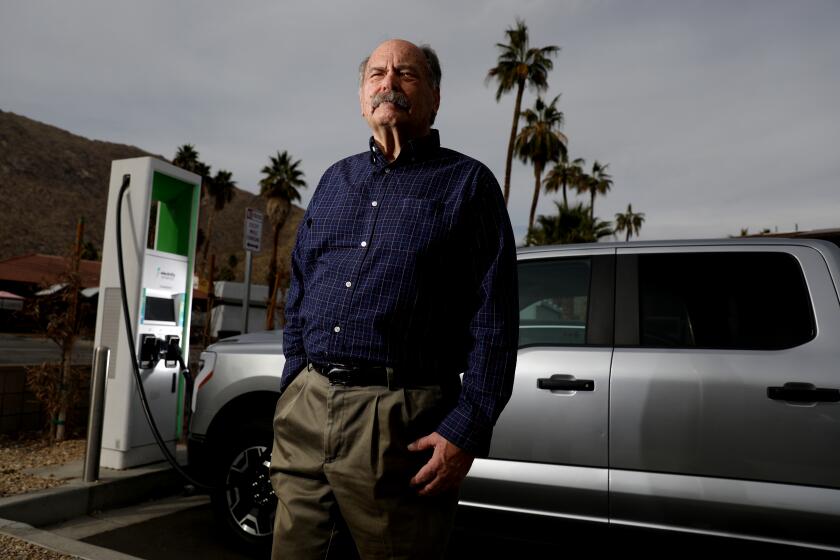Electric and hybrid vehicles could lose California carpool access. What you need to know

- Share via
For years, many owners of electric and hybrid vehicles in California have qualified for temporary “clean air vehicle” decals that let them freely cruise the carpool lane even when driving solo.
That freedom may be coming to an end, however.
If the federal government doesn’t extend the program allowing alternative-fuel vehicles to use the carpool lane, it will expire Sept. 30, 2025.
In 2005, legislation authorized the U.S. Environmental Protection Agency to allow solo drivers in low-emission and energy-efficient cars to use the carpool lane. The point was to promote the adoption of alternative-fuel vehicles and help meet environmental goals, said Ronald Ongtoaboc, public information officer for the California Department of Motor Vehicles.
Those goals aligned with the objectives of carpool lanes, which are to reduce fuel consumption and pollution caused by congested freeways, according to the U.S. Department of Energy.
California electric vehicle sales dropped significantly in the last half of 2023, raising questions about the state’s ability to phase out gas-powered cars.
In the years that followed, states gained the power to choose which vehicle models to give carpool access; their decisions were driven by purchasing trends and technology advancements. But the highway funding bill enacted in 2015 extended that power just through Sept. 29, 2025.
“After that date, the public authority must discontinue allowing the use of such vehicle in HOV lanes unless such vehicle has the required number of occupants or Congress extends this provision,” Ongtoaboc said.
A 2022 update to California’s Clean Air Vehicle decals granted low- and zero-emission vehicles access to HOV lanes just until Sept. 30, 2025.
At the time of the update, there were 411,133 vehicles in California with active CAV decals. Since the program started in January 2001, the DMV has issued more than 1 million decals to cars that meet the state’s criteria, Ongtoaboc said.
Only first-time owners of eligible vehicles qualify for the decals. And since 2018, newly issued decals have expired in four years or less, with no option to renew them.
Why are so many California EV charging stations broken? Lax state oversight of state subsidies is one big reason.
The decals issued since 2022 are set to expire when the state law does, on Sept. 30, 2025. If the federal government and the California Legislature extend the decal program beyond that date, the DMV will evaluate the new requirements before making a decision on whether to extend the existing decals, Ongtoaboc said.
Regardless of color, all decals issued before 2021 have now expired.
More to Read
Sign up for Essential California
The most important California stories and recommendations in your inbox every morning.
You may occasionally receive promotional content from the Los Angeles Times.












